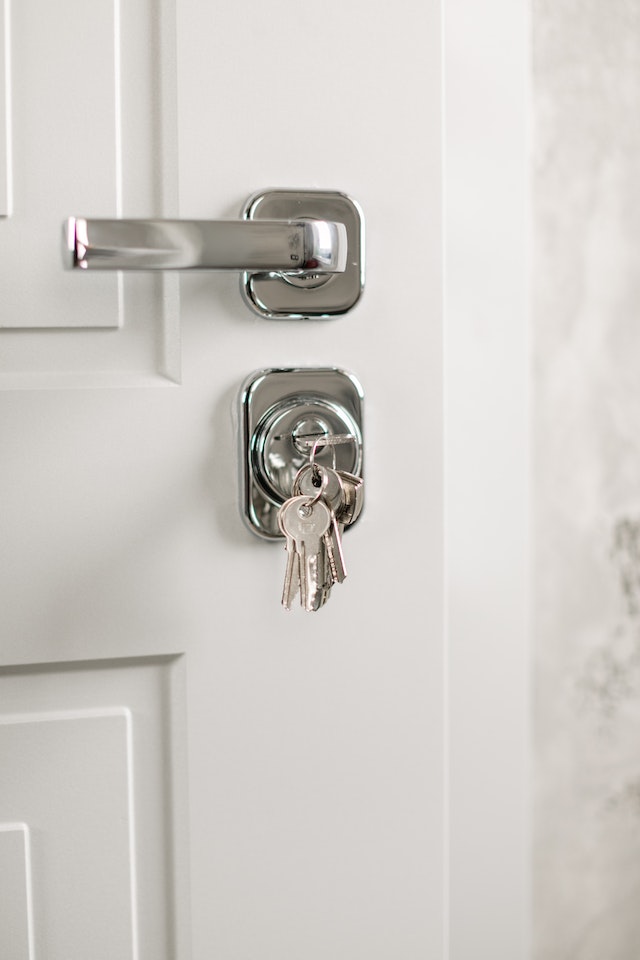Exploring the locksmith profession as your career option? Do you want to learn how to become a locksmith in Wisconsin? If you live in Wisconsin, including Milwaukee, Madison, Green Bay, Kenosha, Racine, Appleton, Waukesha, Oshkosh, Eau Claire, and Janesville, this guide is for you.
In this guide, you will learn about the following:
- How to get locksmith training in Wisconsin?
- Finding the right locksmith schools in Wisconsin
- How to become a locksmith in Wisconsin?
- How to start your own locksmith business in Wisconsin?
- Do you need a locksmith license in Wisconsin?

Should You Become a Locksmith in Wisconsin?
Locksmiths make keys, repair locks, and install locks at homes, commercial establishments and vehicles. People seek help from locksmiths when they need to secure their homes or business, lose keys or need replacement keys for homes, cars or cabinets, etc.
In Wisconsin, many locksmiths are self-employed or run family businesses. Starting a locksmith business here doesn’t require a lot of money. You just need the right skills and a place to work, whether it’s from home or a van with the tools you need.
You don’t need a special locksmith license to work in Wisconsin, but you still need to comply with the rules for operating a business in the state. You just have to know how to make keys and install locks, and you can work for a locksmith company or start your own business anywhere in Wisconsin.
The locksmith industry is a competitive market. Finding customers is going to be the main challenge when you are starting as a locksmith in Wisconsin, or anywhere in the US.
Eligibility for Becoming Locksmith in Wisconsin
Generally speaking, there is no specific requirement for becoming a locksmith. You just need to be eligible to start a business in the state of Wisconsin.
- Age: 18 years or older (a major) and sound mind is a universal requirement.
- Education Degree: You don’t need any education degree or training certification to become a locksmith in Wisconsin.
- Criminal History: Good moral and ethical background is a general requirement. A criminal record will not automatically deny you a chance to work as a locksmith.
- Key Skills: Mechanical and mathematical ability, knowledge of lock components, and ability to use locksmith tools to open & repair locks and make new keys.
- License and Certification: State-issued business license or a business license issued by your City Hall is generally required. Professional certifications recommended.
- Average Salary of Locksmiths: $50,000 – 60,0000 / year (approximate average in the US, as in April 2025, Source: Salary.com).

How to Become a Locksmith in Wisconsin?
- Get locksmith training (join a trade school)
- Work as an apprentice locksmith to gain work experience
- Get locksmith certifications for showing your qualifications (optional)
- Find work with local locksmith companies in Wisconsin or start your own business
- Join a reputed trade association for regular industry knowledge and support
- Upgrade you skills and continue learning about the latest locks & security technology in home, automobile & business space
Step 1: Get Locksmith Training in Wisconsin
Anyone looking to work as a locksmith in Wisconsin should acquire knowledge of the trade.
Find a local locksmith school in your city in Wisconsin. Check local phone directories, yellow pages and online directories for locksmith training courses near you. You can also seek guidance from your local friendly locksmith.
Locksmith schools are few in numbers, and not present in every city. You should expand your search and try to find a good locksmith school near you in Wisconsin. If you cannot find a locksmith training program in Wisconsin, expand your search to include other states.
You can find several reputed locksmith schools in the US that provide online courses. Enroll in an online locksmith course to get a formal training in the locksmith trade.
Locksmith certificate and diploma courses are available through community colleges, vocational schools, and locksmith trade associations.
As an alternative to locksmith training, an aspiring locksmith can also work as an apprenticeship under an experienced locksmith. Even if you learn the trade as an apprentice, you should consider obtaining locksmith certification from recognized entities. Here are some of the popular locksmith courses.
- Basic Locksmithing Course
- Certified Licensed Locksmith (CLL)
- Certified Registered Locksmith (CRL)
- Certified Professional Locksmith (CPL)
- Certified Master Locksmith (CML)
Step 2: Get Employed as a Locksmith (or Apprentice)
Once you have successfully completed a locksmith training course, you should seek employment with reputed local locksmith companies and also with the maintenance departments of local businesses and organizations in Wisconsin.
With certification to back your knowledge of the trade, it shouldn’t be difficult to get hired as a beginner locksmith in Wisconsin. If you fail to find a locksmith technician job, you should look for an apprenticeship under an experienced locksmith to gain real hands-on experience.
Aspiring locksmiths can contact local locksmith businesses for apprenticeship positions. Apprenticeships are generally unpaid or with stipends, but provides you the technical, legal, and business aspects of the locksmith trade.
Though Wisconsin does not require any licensing for locksmiths at the time of writing this article, you are advised to verify the current legal requirements and formalities.
Step 3: Start Your Own Locksmith Business
Many locksmiths enjoy a great career working with local locksmith companies and the maintenance departments of other organizations. However, some like to be their own bosses.
If you are entrepreneurial in nature, you can easily start your own locksmith business in Wisconsin. You can have your own storefront lockshop or operate as a mobile locksmith, with a van fitted with equipment and spares as your workplace.
Many local locksmith businesses in Wisconsin will have both, a lockshop and a locksmith van for mobile services. If you are short on the investment front, you should start working as a mobile locksmith by converting your existing car as your workshop.
Choose your business structure: When you start a business, the first big decision is how to set it up. You can pick a sole proprietorship, a partnership, an LLC (Limited Liability Company), or a corporation.
Sole proprietorship is the easiest because it means you run the business as an individual without too much paperwork. But it also means your personal stuff could be in trouble if the business has problems.
An LLC is a good choice because it keeps your business and personal things separate. So, if the business has issues, your personal stuff is safe. If you want even more protection, especially for bigger businesses, you can go for a corporation.
Obtain business license: Whether you work from a store or a locksmith van, it is a general requirement that your register your business with the City Hall (and the state where required). You will also need to obtain work permits such as contractor licenses. Where your business name is different from your legal name (Doing Business As), you will need to register your business fictitious name too.
Insurance: General liability insurance is often a requirement for obtaining business licenses. Even if your state / county does not mandate any insurance, you should obtain adequate insurance cover to protect your business. A work gone wrong can attract hefty payments for damages. Insurance will ensure that you don’t go bust.
Do you need a locksmith license in Wisconsin?
No, Wisconsin does not have any licensing for locksmiths in the state (as in September 2023). You should consult with the appropriate Wisconsin departments or City Hall or local trade association detailed guidance on starting a locksmith business in Wisconsin.
As in September 2023, you need locksmith licenses in 13 states (Wisconsin is not one of them), and two counties in Florida (Hillsborough County & Miami-Dade County). In Nevada, locksmiths must obtain a permit from the sheriff of the county in which the locksmith works. New York City and Nassau County (NY) require locksmiths to be licensed within their jurisdiction.
Step 4: Join Locksmith Trade Association
Once you get your locksmith license, or start working as a locksmith, you should join any prominent trade association in your state. It will help you stay informed with developments in the sector. You can also find help with several other issues through your trade association.
Being a member of a trade association will help with expanding business, building customer base, continued education, legislative representation, industry bonding, insurance options, and more.
Step 5: Continue Learning
With regular developments in the security hardware industry, locksmiths must keep learning to work with latest locks and vehicle keys. They need to keep acquiring knowledge about new security systems and locks.
You need to stay updated with the latest developments in the lock security space for success in the locksmith industry.
As a professional locksmith, you should attend industry seminars and events. Locksmiths should also benefit from training and educational opportunities offered by lock manufacturers, trade associations, and locksmithing schools.
That’s all on how to become a locksmith in Wisconsin. Don’t forget to verify the applicable laws (for new legislations and amendments) and compliance requirements for the locksmith industry in Wisconsin.
